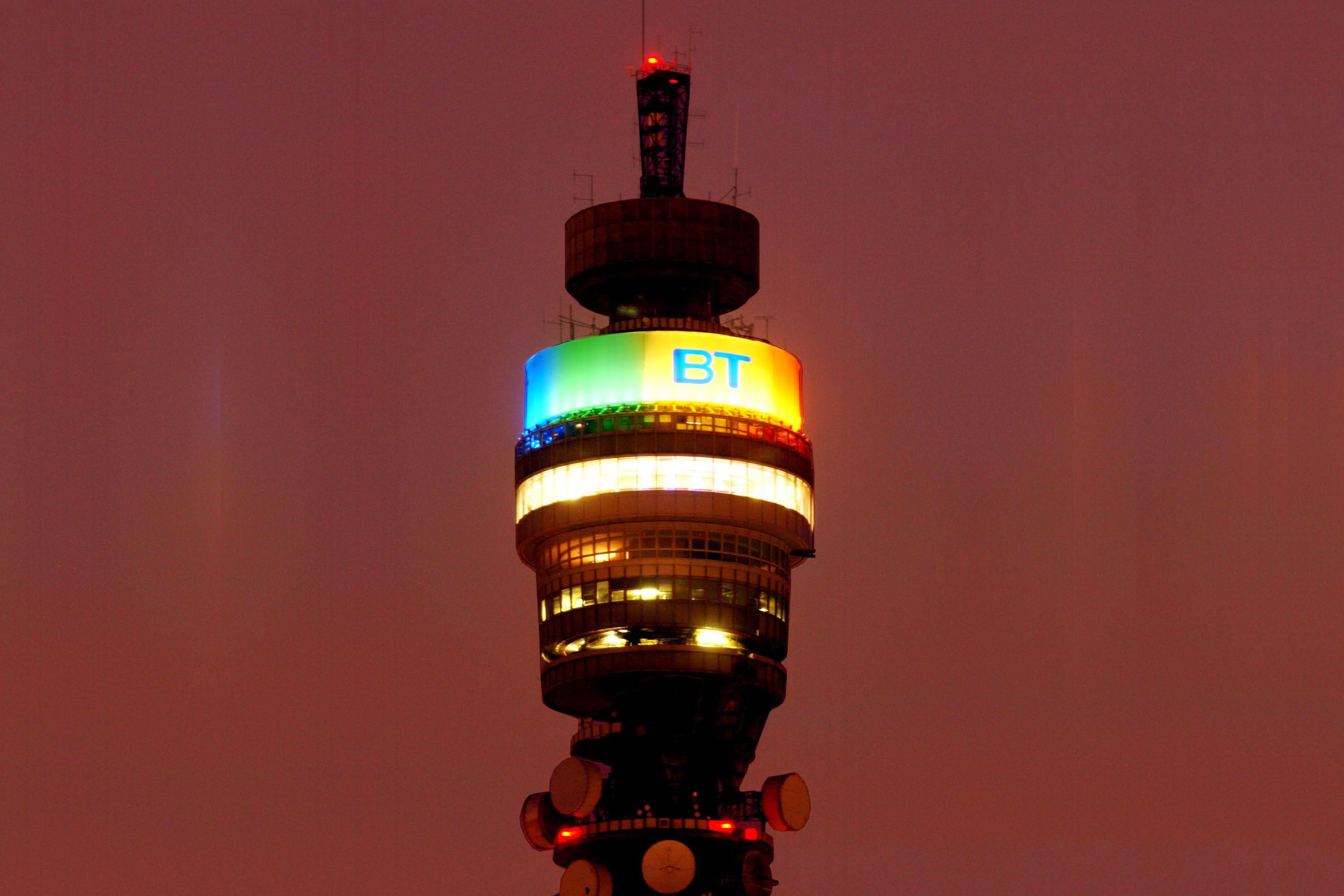BT/EE banned from bidding for half of frequency at next spectrum auctions
New Ofcom rules prevent BT from bidding for half of frequencies available at 2017 spectrum auctions

Ofcom has set out rules for next year's spectrum auctions, which appear to prevent BT from bidding for half of the available frequencies on offer.
The 2017 auction should bid out 190MHz of spectrum in two bands, 2.3 GHz and 3.4GHz, increasing the overall spectrum available by 29%.
According to figures from Citi (cited by The Financial Times), after its acquisition of EE, BT owns around 42% of the UK's usable spectrum, while Vodafone owns about 28%, followed by Three (15%) and O2 (14%).
In order to prevent BT from becoming too dominant and favour competition between UK mobile operators, Ofcom said it would prevent BT/EE from bidding for 2.3 GHz band spectrum.
The 2.3GHz band is accessible by most current smartphones, and would hence be frequencies that would immediately boost a mobile provider's capacity.
As most mobile devices are not currently using it, spectrum in the 3.4Gz band, will not be capped. This spectrum is likely to become usable in the coming years.
This should allow a greater possibility for expansion in currently utilisable spectrum by smaller mobile operators such as Three and O2.
Get the ITPro daily newsletter
Sign up today and you will receive a free copy of our Future Focus 2025 report - the leading guidance on AI, cybersecurity and other IT challenges as per 700+ senior executives
In October, Three, TalkTalk and the Federation of Communication Services (FCS) had sent an open letter to Ofcom CEO Sharon White, asking for a 30% cap on the total amount of spectrum companies can own, to prevent BT/EE and Vodafone from monopolising the market.
Among other things, the letter said that the uneven spectrum distribution between UK mobile operators could result in "higher prices for a poorer service at a time when mobile's importance to the digital economy has never been greater".
At the time, a BT/EE spokesperson had told IT Pro: "We use our spectrum to deliver the very best network experience for customers. We pioneered 4G and we are a leader in network speeds, developing technologies to provide some of the highest mobile download speeds in the world."
Ofcom's decision suggests it also wants to prevent BT from dominating the mobile operator market, particularly seeing as this auction will be of crucial importance, as no further spectrum should be released before 2020.
Some mobile operators, such as Three, were not entirely satisfied by OfCom's decision. Three's CEO, Dave Dyson, released a statement saying: "Ofcom exists to promote competition and protect consumers but it has once again shown it is not willing to make the big decisions needed to deliver the best outcome for the UK."
Dyson added: "The mobile industry is failing customers and Ofcom has showed it has no interest in addressing that. A 30% cap on total spectrum ownership and a spectrum reservation for smaller operators are the only measures that will preserve competition for the benefit of UK mobile consumers."
This article was originally published on 21/11/2016 at 12:00, but was updated on 22/11/2016 at 15:27 to include a statement by Three.
-
 Cleo attack victim list grows as Hertz confirms customer data stolen
Cleo attack victim list grows as Hertz confirms customer data stolenNews Hertz has confirmed it suffered a data breach as a result of the Cleo zero-day vulnerability in late 2024, with the car rental giant warning that customer data was stolen.
By Ross Kelly
-
 Lateral moves in tech: Why leaders should support employee mobility
Lateral moves in tech: Why leaders should support employee mobilityIn-depth Encouraging staff to switch roles can have long-term benefits for skills in the tech sector
By Keri Allan
-
 Optimise CX and accelerate business growth through your voice network
Optimise CX and accelerate business growth through your voice networkwhitepaper Protecting the human experience in a digital world
By ITPro
-
 New Ofcom guidelines show it’s getting tougher on big tech
New Ofcom guidelines show it’s getting tougher on big techNews New Ofcom guidance outlining its plans for the Online Safety Act show the regulator is toughening up on big tech.
By Emma Woollacott
-
 IDC InfoBrief: Sustainability doesn’t need to be all stick and no carrot
IDC InfoBrief: Sustainability doesn’t need to be all stick and no carrotwhitepaper CIOs are facing two conflicting strategic imperatives
By ITPro
-
 ‘The pace of change is taking its toll’: Business leaders are becoming burned out by rapid technological changes
‘The pace of change is taking its toll’: Business leaders are becoming burned out by rapid technological changesNews Tech leaders are contending with mounting stress levels amidst a sharpened focus on adopting new technologies and ramping up transformation efforts
By Emma Woollacott
-
 Unlocking the power of your digital services
Unlocking the power of your digital servicesSponsored Businesses have invested significant cash into technology since COVID-19, but are they really getting their money's worth?
By ITPro
-
 The forgotten workforce needs a new communications strategy
The forgotten workforce needs a new communications strategySponsored Reliable communications technologies are key to building an efficient remote workforce
By ITPro
-
 The future of work and the forgotten workforce
The future of work and the forgotten workforcewhitepaper How to deploy a mobile-first strategy so no one gets left behind
By ITPro
-
 Building an outstanding digital experience
Building an outstanding digital experiencewhitepaper Insight into how banks and financial services organizations can deliver the digital experiences customers and employees expect
By ITPro